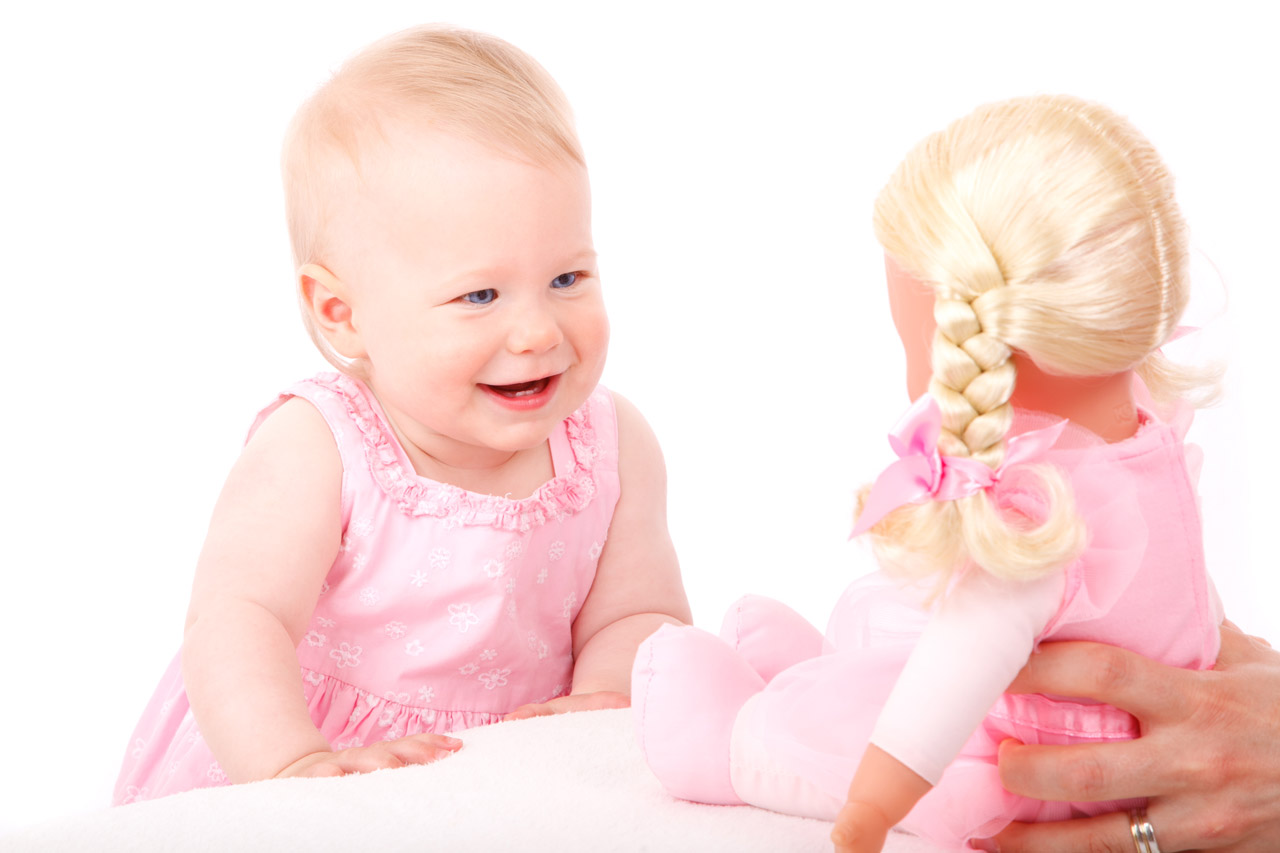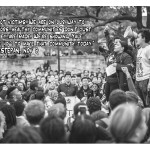by Marina Tinone
“The Colored Doll”
I presented these dolls to them and… [t]he conclusion which I was forced to reach was that these children [in Clarendon County], like other human beings who are subjected to an obviously inferior status in the society in which they live, have been definitely harmed in the development of their personalities; that the signs of instability in their personalities are clear.
Is that the type of injury which in your opinion would be enduring or lasting?
I think it is the kind of injury which would be as enduring or lasting as the situation endured, changing only in its form and in the way it manifests itself.
– Brown v. Board of Education (1954)
Hard plastic hands, peach skin, brittle synthetic lashes, pellet-filled body. Lifeless, but isn’t she precious? Baby doll?
The other day I saw a little Black girl holding her mother’s hand, boarding the bus to New Haven.
As her mother guided her onto the bus, I noticed, in the crook of the little girl’s arm, that little peach baby doll. Stark contrast against the little girl’s cheek and her cornrows threaded with beads.
I wondered if she could hold her doll dear, when at best, she would have to claim some sort of adoption in her make-pretend world with her baby.
My eyes stay locked out the window as the little girl boards the bus, passing my seat. As I hear her settle into the back row, I wonder, I don’t look back but I wonder, if that little girl plays with her baby doll the way I never could.
I remember: I was her age, holding hard plastic hands, peach skin, brittle, synthetic lashes, pellet-filled body. Lifeless, but wasn’t she precious? Little baby doll, American?
Three, maybe four years old, holding a white plastic baby. I remember trying to love it, but I couldn’t. This baby, I knew, couldn’t be mine.
Me, with my straight black hair and skin that seemed to turn more strikingly yellow when I pressed my cheek against the plastic baby body.
Maybe I learned some hard lesson in motherhood that I didn’t know back then; I don’t know. But know that I couldn’t love that doll. I couldn’t.
Three, four years old. I held that doll out of obligation, to nurture a doll in which I found nothing of myself.
Five, maybe six years old. Giggling the way little girls do, like when they’re about to walk and jump on a balance beam.
I wore a pink leotard, like all the other little girls. It made my skin look yellower, on them, their skin looked softer and rosier.
“My hair is strawberry blonde.” She flipped her ponytailed hair about. “My mommy said it’s strawberry blonde.”
“Is my hair strawberry blonde too?” wondered the girl in front of me.
“No, it isn’t, your hair is just blonde. My mommy said–”
You don’t know how it felt, standing in line behind that strawberry blonde girl, begging in your own head for her to stop, balling your four year old hands into fists.
Did you know that strawberry blonde girls have the same color skin as American baby dolls?
I didn’t hit her out of obligation.
“I was born in Farmington,” I would later tell my classmates in grade school.
“But where are you from? Like really really from?”
“Japan, but I only lived there when I was two.”
“Don’t they live in houses with sliding doors in Japan? Does your house have sliding doors?”
“No, I live here, just like you.”
“But your house doesn’t have sliding doors?”
March 3rd is girl’s day, in Japanese, Hina Matsuri. Traditionally, a display of regal dolls would be found in the household, celebrating girlhood and hopes for a good marriage. Not that my family ever found themselves to be one of tradition, but my mom would dutifully set up our miniature emperor and empress dolls beside each other on the mantle.
The mantle. One of black and red and white brick, the shelf above an American fireplace.
I would lean against the cool brick, absent minded child, staring at the Japanese set-up.
I knew I couldn’t possibly be a good Japanese girl. Fragile, mincing, obligating, motherly, responsible. A beautiful, dutiful doll.
God knew I was a damned Yankee girl since the day I was born (in Farmington, Connecticut, mind you).
Eight years old. Standing in line for recess, little girls talking excitedly the way little girls do when they learn they will receive a gift.
American Girl dolls garnered some sort of rite of passage for my middle-class peers. They garnered a trip to New York, careful decision-making, trying to choose outfits and accessories for their hard-handed, peach-colored 18-inch American girl. In purchasing their doll, they needed to find themselves in the Velcro outfits and unseeing plastic eyes of their brittle-lashed dolls.
Do you know what the “Asian-American” doll looked like?
Peach-skinned, black hair, hard-handed.
But dear Lord, the eyes. Forced narrow slits. Conniving, unbecoming.
Ugly.
The alternative would be to buy the white doll with straight black hair and big, innocent, American eyes.
I knew I couldn’t love these dolls.
I wanted to be like my classmates, finding their American Girl in the shelves of a glitzy New York store.
But I knew I wouldn’t find me.
I think I wanted to be Japanese when I was little. I really do think I tried.
I often wore the polyester kimono slip my dad brought back from one of his long business trips to Japan, complete with the zori sandals, just for fun, to play. I would take soft little steps about the house, trying to move from the seated, kneeling seiza position on the ground in soft motions, within the confines of the dress.
My parents couldn’t care less about what I wore when I played my make-believe. All this play, I chose.
A soft voice, a bowed head.
I would tire of it quickly.
I’m too American to be patient; I’m too American to properly endure.
Screaming revolution in Asian silence.
Farewell to Manzanar and farewell to Japanese confinement.
Jeanne came of age distancing herself from a Japanese-American past.
Trying to be All-American, cheerleader-type girl.
Can’t escape the Asian black hair though, can you?
Middle school, between books, in hallways.
I found myself unbeautiful.
Streaks of bleached hair, damaged blonde.
Friends would notice, compliment me.
I hoped that boy would notice me.
Futile.
Hagar cried herself to a stupor.
I don’t remember how it went exactly, but I remember her beautiful tangle of hair in that shoebox, I remember her trying to fit into all the clothes and accessories in those glitzy boutiques. She needed him back.
Fuck that bitch with the beautiful red hair.
To me, it was strawberry blonde, and I fell intoxicated with Hagar, poor girl, trying to make herself up into an American girl.
The two of us, in our different ways, trying to become the American doll.
I cried with her.
American girl, American doll.
I am eighteen years old, bleaching streaks into my black Asian hair.
American girl.
I swear I am a daughter of a Revolution. I know I am.
American doll.
I could never really hold myself dear, me with my jaundice skin compared to the smooth peach of your manufactured American dream girl.
Hagar and I still suffer through the mall.
We lost the boy, in the end.
The bus rolls to a stop, the New Haven green. It’s my stop— happens to also be the end destination for the little Black girl.
Here’s me, standing in the center of this old American town, New Haven, wondering if I will find new refuge in its American name.
But I doubt it.
I don’t know what this American town can save me from, after all this time.
Me and my bleached hair.
The little Black girl and her untainted cornrows.
Little white doll in the crook of her arm.
Be safe, baby girl.



